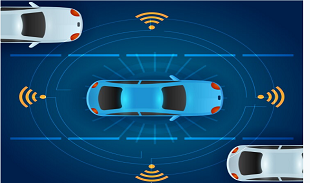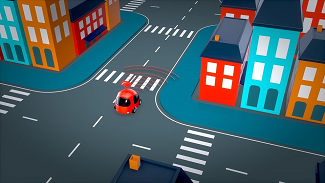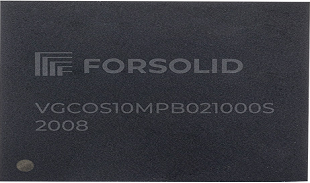6 New Challenges to SSD on Chip for Realization of Autopilot Driving
2022-03-03 | admin
Technology has come a long way, and we have procured new ways to make our lives a lot easier through technological automation. Driving, an activity that requires focus, energy and comes with several chances of error, can become a rather tedious experience over time.
It's no surprise that autopilot driving with incredibly beneficial is being intensively developed to replace manual driving. Autopilot driving supported by SSD on Chip would eliminate human errors almost entirely. Further, they would reduce the chances of traffic congestions since all cars would follow nearly similar patterns. We aren’t far from autonomous cars taking over; many brands like Tesla, General Motors, Ford, and even Amazon are investing in automotive vehicles.
The autonomous car industry expands day by day, and even though we saw the industry take a huge hit when COVID-19 took over, it is growing steadily once more. Experts predict the value of the US autonomous vehicle market will reach $560 billion by 2035!

In order to successfully design and implement an autonomous system for a vehicle, several factors must be considered.
l First, the program must adapt to traffic signals it encounters rapidly;
l Second, it must be incredibly precise in perceiving its surroundings to avoid any chances of error/accidents;
l Third, the vehicle must keep itself at a safe distance from other vehicles.
Here we will discuss three core parts of an autonomous vehicle required for successful implementation.
For self-driving vehicles to avoid accidents/collisions while driving, the vehicle must be able to distinguish and identify the objects around them. It can do so by using various sensors and cameras around it to make 3D maps for it to follow. It will also constantly use its own GPS map to get you to the correct location. AI software is embedded into a processing chip such as an SSD on Chip or GPU; it uses deep learning (a type of machine learning) to control actions in the driver control system.
LiDAR sensors are essential for self-driving vehicles; these sensors essentially work by using near-infrared light to detect objects around the vehicle. The LiDAR supporters suppose that the surrounding information should be stored in the SSD on Chip in detail; therefore, the system can keep recognizing the surrounding objects by its radars and comparing the received information with the stored information by its powerful SSD on Chip. By the combination of radars and SSD on Chip, the system can better navigate around any obstacles.
V2N or vehicle-to-network communication is also an integral part of autonomous vehicles. This form of communication allows for a cooperative exchange of information between cars, trucks, buses, traffic lights, and nearly all parts of the road infrastructure network. This type of communication would help aid traffic safety and improve efficiency. For example, a vehicle could use V2N communication to transmit messages to the vehicle behind when it comes to a sudden halt.

One of the main obstacles to realizing the self-driving dream is a large amount of data needs to be dealt with during autopilot driving. There is no denying that the assumptions can only be put into practice if the vehicle has a built-in powerful data process. In other words, an SSD on Chip can perfectly complete the mission with a large capacity to store the data and also the ability to process data in no time.
SSD control chips are a new generation of storage devices that are much faster, more efficient, and more reliable than standard hard disks. SSD on Chip like VEIGLO OSSD-BGA SATA provides numerous benefits for autonomous vehicles. Here is why SSD on Chip is being used for autopilot driving:
SSD chips do not have any mechanical moving parts; this is why they are known to be much more resistant to vibrations. Long terms constant exposure to vibration could reduce its productivity to some minor extent, but that would be an incredibly rare occurrence.
At the same time, SSDs are also known to be more shock-resistant than other chips. This is because SSDs do not have any moving parts which would be affected by mobility or harsh bumps.
SSDs are known to handle heat incredibly well. They can work well between temperatures ranging from 0ºC up to 70ºC (32ºF to 158ºF). Moreover, they won't overheat as quickly since they don't have any moving parts.
SSDs have impressive read and write speeds; they can go through large batches of data far more quickly than other forms of chips. Autonomous vehicles need to transmit and receive large amounts of data from their environment; therefore, SSDs for storage are ideal for autonomous systems.
SSD on Chip is a lot more stable and is less prone to failure. While traditional chips can fail due to mechanical issues, the SSD on Chip is incredibly reliable because of its updated key component – NAND Flash and built-in ECC (Error Correction Code).
SSD chips are far more durable in extreme and harsh environments; they can withstand shocks, vibration, extreme temperatures, and external magnetic fields a lot better than traditional forms of storage devices.

VEIGLO OSSD-BGA SATA 1TB memory product is an incredible SSD type you can incorporate into your autonomous system for vehicles. Autonomous vehicles are no longer a futuristic dream; they are here now. You can discover the full capabilities of your autonomous vehicle once you pair it with the OSSD-BGA SATA chip.
With a capacity for up to 1TB of data storage, transfer, and rapid collection, this SSD on Chip is the automated system solution you have been looking for. The SSD on Chip comes in a compact size, with a smaller volume, just about 31.0mm x 36.0mm x 3.0mm, can easily be embedded into any autonomous system. Paired with its impact-resistant form, high protection design, and wide operating temperature (up to 85ºC!), VEIGLO OSSD-BGA is set apart from other SSDs for storage.
VEIGLO is one of the leading manufacturers of storage devices, particularly solid-state storage technology. Since VEIGLO’s inception in 2013, we have provided its clients with high-quality, state-of-the-art SSD solutions and data application solutions for all types of autonomous systems worldwide. Our products can be applied to all industries, including the automotive industry, the medical industry, and security systems.
We have established ourselves as the expert in the industry and are now supplying clients worldwide with their solid-state drive control chips. Come and enjoy our high-performance SSD products!
Previous: The Ultimate Guide on Industrial SSD and Its Flash Memory Classification
Next: Everything You Should Know About Industrial SSD in Rail Systems